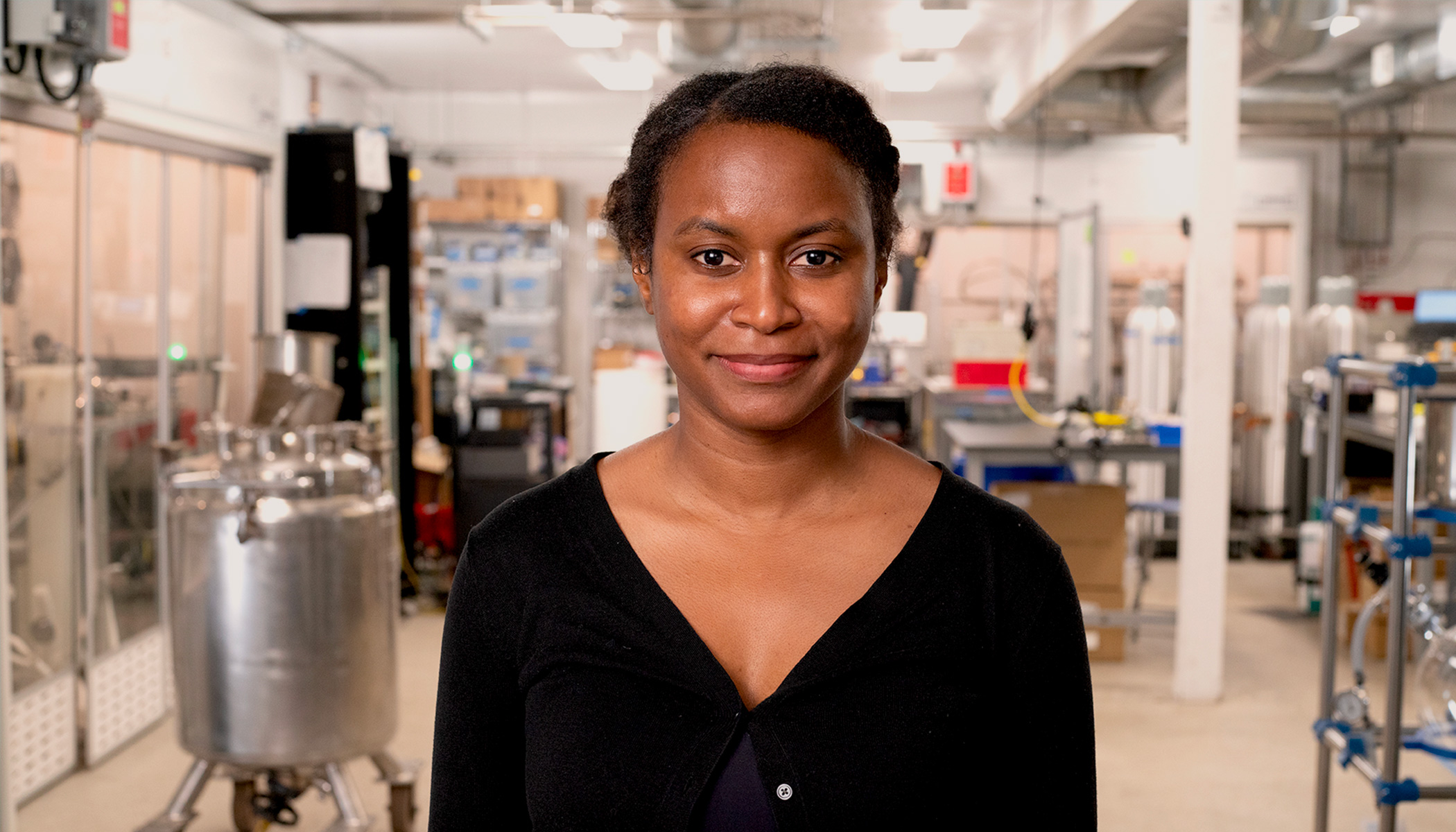Feb 10, 2022 · 7 min read
Chan Zuckerberg Initiative Invests in Promising Climate Change Solutions
Funding Supports Innovative Financing Strategies and Enables Entrepreneurs and Companies to Advance Carbon Dioxide Removal

Today, the Chan Zuckerberg Initiative (CZI) announced $44 million in funding to develop and scale promising technologies to help address climate change as part of an exploration of cutting-edge and emerging solutions, including carbon dioxide removal (CDR). Employing innovative financing strategies—including grants, investments, and making carbon removal purchases directly from companies—is part of CZI’s approach to accelerating action on climate change.
CDR encompasses a range of approaches that absorb existing carbon dioxide (CO2) from the atmosphere and store it in a stable form or use it in products like concrete, which can also help reduce emissions in hard-to-decarbonize industries. Alongside reducing existing sources of emissions as quickly as possible, carbon removal is one pivotal way to reduce harm from climate change. According to the Intergovernmental Panel on Climate Change (IPCC), all pathways for limiting global warming to 1.5 degrees Celsius rely on carbon removal.
“Scaling carbon removal to a consequential level will require massive advances in technology and innovation,” said CZI co-founders and co-CEOs Priscilla Chan and Mark Zuckerberg. “That’s why we’re supporting companies and researchers through a variety of financing methods. We also partnered with Watershed to purchase carbon removal credits from several companies to help scale promising technologies.”
More detail on this additional funding is as follows:
Elemental Excelerator: Elemental Excelerator is on a mission to redesign the systems at the root of climate change. Since its founding in 2009, Elemental has supported more than 130 companies working to scale market-driven solutions to climate change, including carbon dioxide removal and beyond. By breaking down barriers to innovation alongside entrepreneurs, Elemental gains unique insight into the policy, market, and technology needs required to build systems that uplift people and communities worldwide.
Elemental focuses on accelerating solutions at the nexus of climate and social equity. The organization has developed a Climate x Social Equity practice that includes a toolkit for equitable project deployment. This Climate x Social Equity practice also hosts EDICT (Empowering Diverse Climate Talent), an internship program that provides individuals from traditionally excluded backgrounds with career experience at organizations tackling the climate crisis that have pledged to empower equity, diversity, and inclusion. This $500,000 grant is part of CZI’s $500 million commitment to support organizations building just and sustainable systems that advance racial equity, diversity, and inclusion.
Twelve: Twelve is a chemical company that uses breakthrough technology to eliminate emissions by turning CO2 into products like jet fuel and electric car parts. Instead of creating these products from fossil fuels, Twelve sources carbon from existing CO2—replacing the fossil carbon in critical chemicals with renewable, recycled carbon from CO2. By combining CO2, water, and renewable energy, Twelve helps organizations like NASA reach climate goals. The transformation of carbon into other materials is a critical stepping stone in getting to a carbon negative economy and creating a robust market for carbon removal.
With CZI’s $20 million strategic program investment, Twelve will develop advanced capabilities for CO2 electrolysis, which will increase performance, accelerate timelines to large-scale deployment, mitigate supply chain dependencies, and reduce costs. Read more about Twelve’s work.
University of California, Los Angeles (UCLA) Institute for Carbon Management: The Institute for Carbon Management (ICM) at the UCLA Samueli School of Engineering focuses on developing breakthrough technologies to reduce carbon emissions and accelerate their commercialization. CZI’s $21 million grant will enable ICM to bring three promising carbon removal solutions from the lab to the field to validate real-world efficiency at scale.
- Using only seawater and electricity, the SeaChange process removes CO2 dissolved in seawater by an energy-efficient approach. The technology has the potential to achieve gigatons of CO2 removal and mitigate ocean acidification while producing green hydrogen, a clean fuel, as a co-product. ICM will build and operate an advanced electrochemical flow-reactor and demonstrate the SeaChange process at the Port of Los Angeles—providing foundational insights to bring down carbon removal costs while creating a blueprint for accessible, equitable, catalytic CDR technology deployment that will engage surrounding communities.
- Direct air capture of CO2 is expensive because of the large amounts of energy required to separate CO2 from the air. ICM is pioneering an approach for electrochemical direct air capture that is modular and far more energy-efficient than existing thermal methods. The process produces cheaper, partially concentrated streams of CO2 that can be used at a large scale in a distributed manner, such as producing low-carbon concrete, and thereby enabling CO2 removal and industrial decarbonization while catalyzing new uses for CO2.
- Portlandite, which is also known as calcium hydroxide, is a replacement for limestone and cement in cement and concrete production, respectively. ICM will develop a new electrochemical process for portlandite production that can be used to make carbon-negative concrete, and that could reduce the CO2 emissions associated with cement production by 65 percent. This new process removes the need for burning limestone or fossil fuels, and requires only electricity, geological or industrial sources for calcium, and water for its operation. This approach creates a unique pathway for decarbonizing cement and concrete production, which currently accounts for 8 percent of global CO2 emissions.
Carbon removal purchases: CZI is committed to reducing our own emissions in 2022 and beyond. We’re working with Watershed, a software platform, to comprehensively measure our carbon emissions and execute on a plan to reduce them. For emissions that we can’t yet reduce, we are working on a plan to purchase rigorous carbon removals. We want these purchases to provide additional catalytic support to carbon removal companies that are working to demonstrate demand for their products. Making these purchases can help bring down the cost per ton of permanent carbon removal by accelerating the development and deployment of new carbon removal technologies, helping them scale in the future.
CZI also purchased $2.5 million in credits for removing carbon from the atmosphere from six innovative organizations:
- Charm Industrial uses plants to capture CO2 from the atmosphere and then converts the biomass into a stable, carbon-rich liquid that is pumped deep underground and stored for millennia.
- Freres Lumber produces lumber-based products with a 100% biomass-fired rotary bed boiler. They use their own biomass power production to develop high-quality biochar as part of their overarching mission of minimizing their impact on the environment.
- The International Small Group and Tree Planting Program (TIST) is a time-tested reforestation program led by farmers in Kenya, Uganda, Tanzania, and India who are transforming their lives, ensuring better futures for their children, and improving their farms and communities by planting trees.
- Mission Zero is developing direct air capture technology that will recover high-purity CO2 from the air while incurring only a fraction of the costs and energy it takes to do so today.
- Oregon Biochar Solutions sources feedstock from woody wastes in the Pacific Northwest to manufacture biochar, an exciting soil amendment that sequesters carbon for hundreds, sometimes even thousands, of years.
- Running Tide removes carbon dioxide from the atmosphere by growing kelp and sinking it in the deep ocean.
###
About the Chan Zuckerberg Initiative
The Chan Zuckerberg Initiative was founded in 2015 to help solve some of society’s toughest challenges — from eradicating disease and improving education, to addressing the needs of our local communities. Our mission is to build a more inclusive, just, and healthy future for everyone. For more information, please visit www.chanzuckerberg.com.





